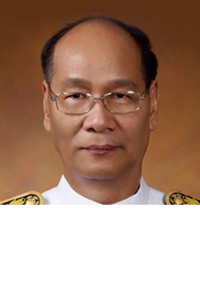
In January, a mere seven months ago, I and two of faculty members at the College of Local Administration, Khon Kaen University, co-authored a paper titled, "Locally-Driven Action in Pandemic Control: A Case of Khon Kaen Province". This article presented the results of a study that examined the local action taken in Covid-19 control and prevention measures in Khon Kaen. At that time, Thailand was among the leading nations in the world in Covid control.
During the first wave, there was little leadership or direction from the central government, according to the paper. The Centre for Covid-19 Situation Administration (CCSA) was established at the national level in March 2019. They delivered policies to all provinces. However, the responsibility for tackling the virus was left to the provincial administration -- with provincial level committee tasked to carry on measures being appointed. The Provincial Communicable Diseases Committee set guidelines and led actions to control communicable disease within the province.
Thailand had a system in which operations started at the central government and cascaded to the provincial and local levels to enable prompt response to the situation. But in reality, provincial authorities and local administration organisations during this Covid situation did not wait for direction from the central government. As soon as the outbreak began in Thailand, authorities in Khon Kaen made plans and were prepared in advance of receiving the central mandates.
A national government decree restricted access to public venues during specified times, controlled certain locations where there was a high risk of transmission and required wearing a mask when in the community.
In addition, local governments throughout Khon Kaen set up surveillance points to identify visitors from outside of the communities and checked the body temperature of all persons who travelled into the communities. Within each community, local governments clearly communicated and updated the situation regarding the infection rates and areas that citizens should avoid travelling to. This naturally created a smooth and strong collaboration between the citizens and government.
To local government, the ability to make financial decisions without obtaining prior approval from higher levels is an important part of quickly implementing policy. There were many cases where areas had not been allocated funds to cover the unanticipated expenses. To deal with this, the local administrators used their own discretion to approve the use of the emergency funds. This is a bold step in a system where almost all fiscal approvals must come from a higher level, often directly from the central government. In addition to providing public services in normal conditions, local autonomy allows local governments to be refuges for the people and a path to the central government during emergencies.
Many of these measures could not have happened without cooperation and support from the community. Village heads are local representatives who implement policies from the district and province. They promote orderliness in the community and, in the case of Covid, they established screening points, provided public relations, provided access to information and assistance to vulnerable groups. They coordinated with the volunteer networks, and many were able to draw on their experience in working during health emergencies in the past.
Nam Phong district in Khon Kaen launched a pandemic response operation, but the local people were afraid and did not want to cooperate initially. Therefore, local volunteers were assigned as go-betweens, and they received excellent cooperation from local people as the volunteers were known to them. The volunteers understood the concerns of the people in their communities, were trusted by the people and communicated more effectively than government officials from the outside; a prime example of community spirit in action.
A primary lesson to be learned is that considerable benefits can be derived by allowing greater autonomy, especially fiscal autonomy, to local government. It is doubtful if the ability to cope with the pandemic as effectively during that first wave could have been accomplished as successfully without the ability to make decisions locally without prior approval by higher governmental levels. Further, the constant red tape leads to frustration and undermines the will of the people to "give their all" in pulling together to combat the pandemic.
There was a high degree of public and private collaboration. The private sector realised that the coronavirus affects the economy, and the lockdown hurts everyone. Business leaders and philanthropists donated food, basic medical supplies and amenities to those who lost their jobs. This reinforced the bonds and served as a symbol of the desire to fight the pandemic together.
Now, here it is just a few months later, and Thailand is no longer an example of success but of disappointment. Again, one only needs to read the daily Covid statistics to see how far we have fallen.
Today, there is much finger pointing over who should be blamed for the sorry state of the vaccine rollout. There is distrust about the procurement and administration of vaccines, selecting a low-efficacy vaccine from one company versus other available brands. Autonomy could have been granted earlier to private health facilities to procure vaccines. Central to the governance issue was the decision that the politicians, bureaucrats and elites would be vaccinated before frontline health workers and people at high risk.
We have looked at the cooperation shown during the first wave, using the experiences of Khon Kaen as an example of what could be accomplished with local autonomy and the partnership of the provincial and local governments, businesses and citizens.
One must ask: "If the control had not been withdrawn from local governments and returned to the central government, leaving no local autonomy, would we even be discussing the disaster that is the third wave today?"

